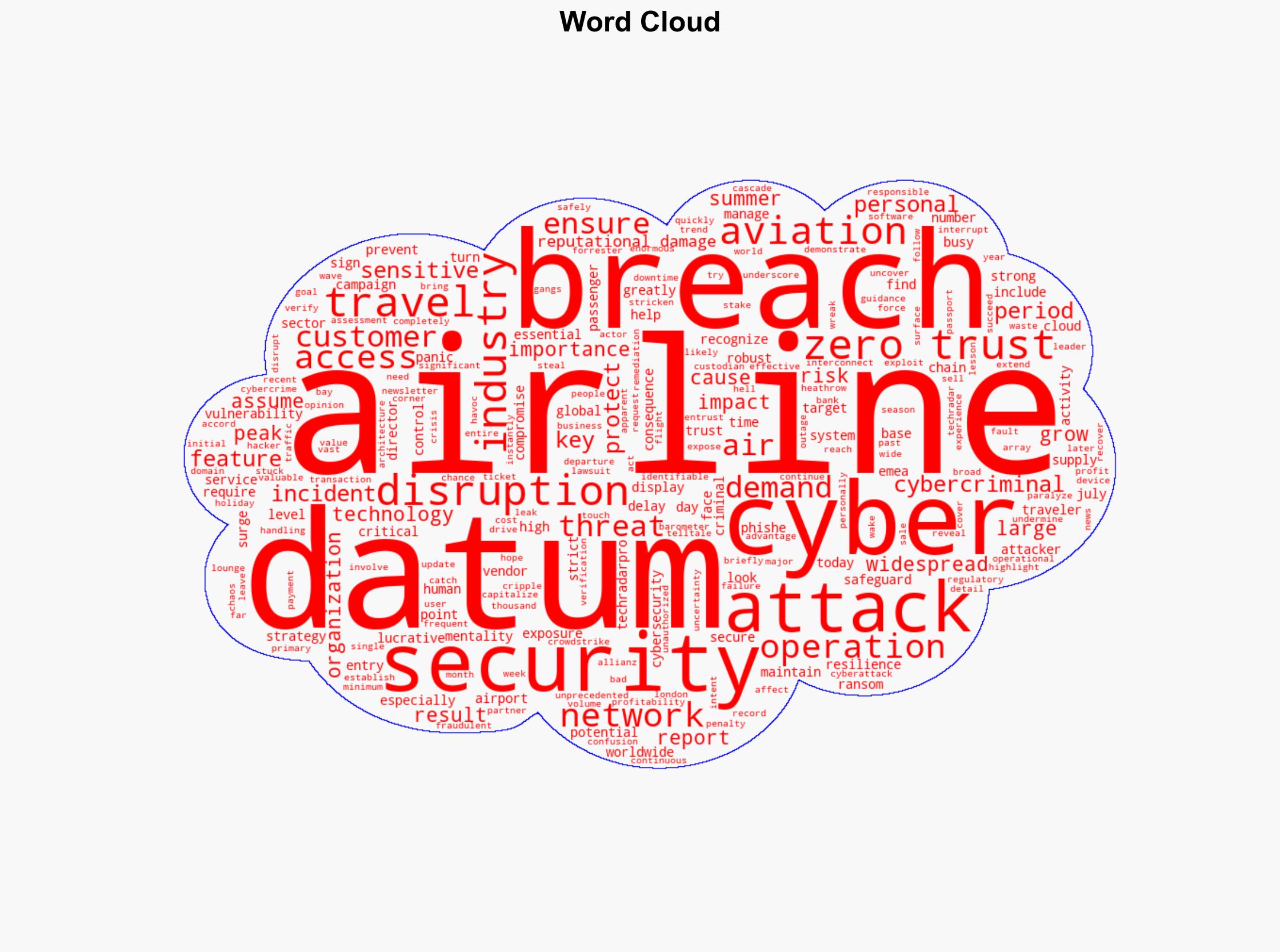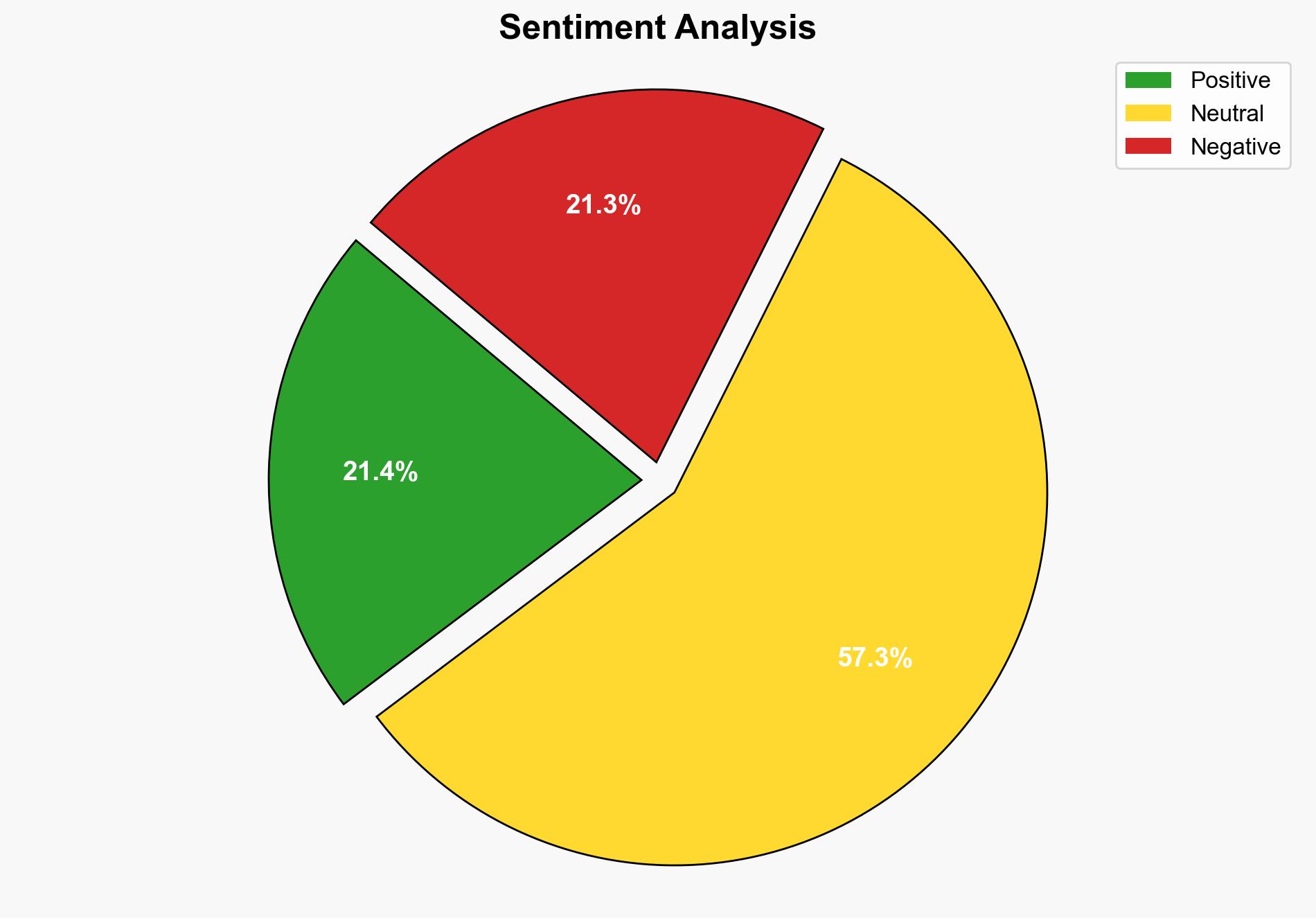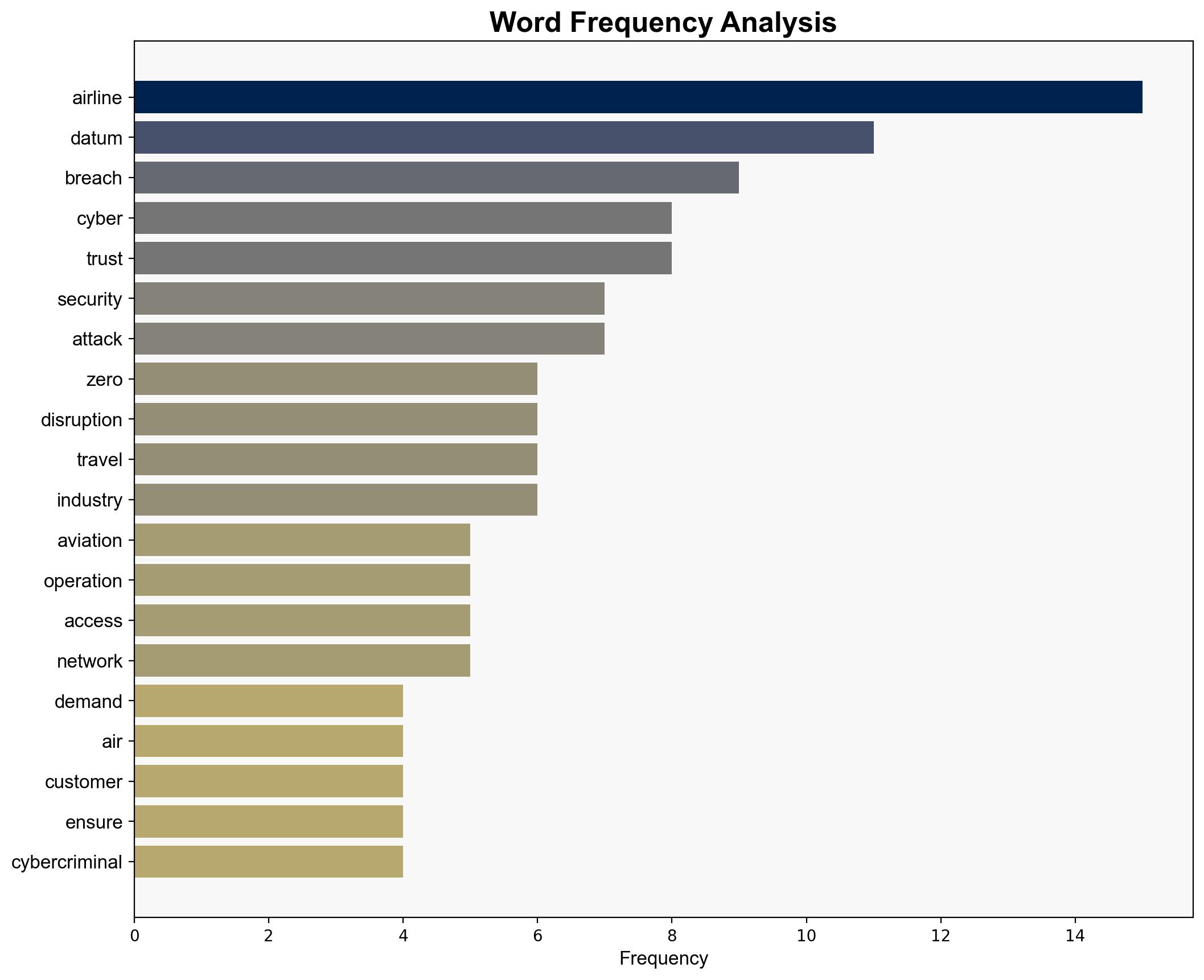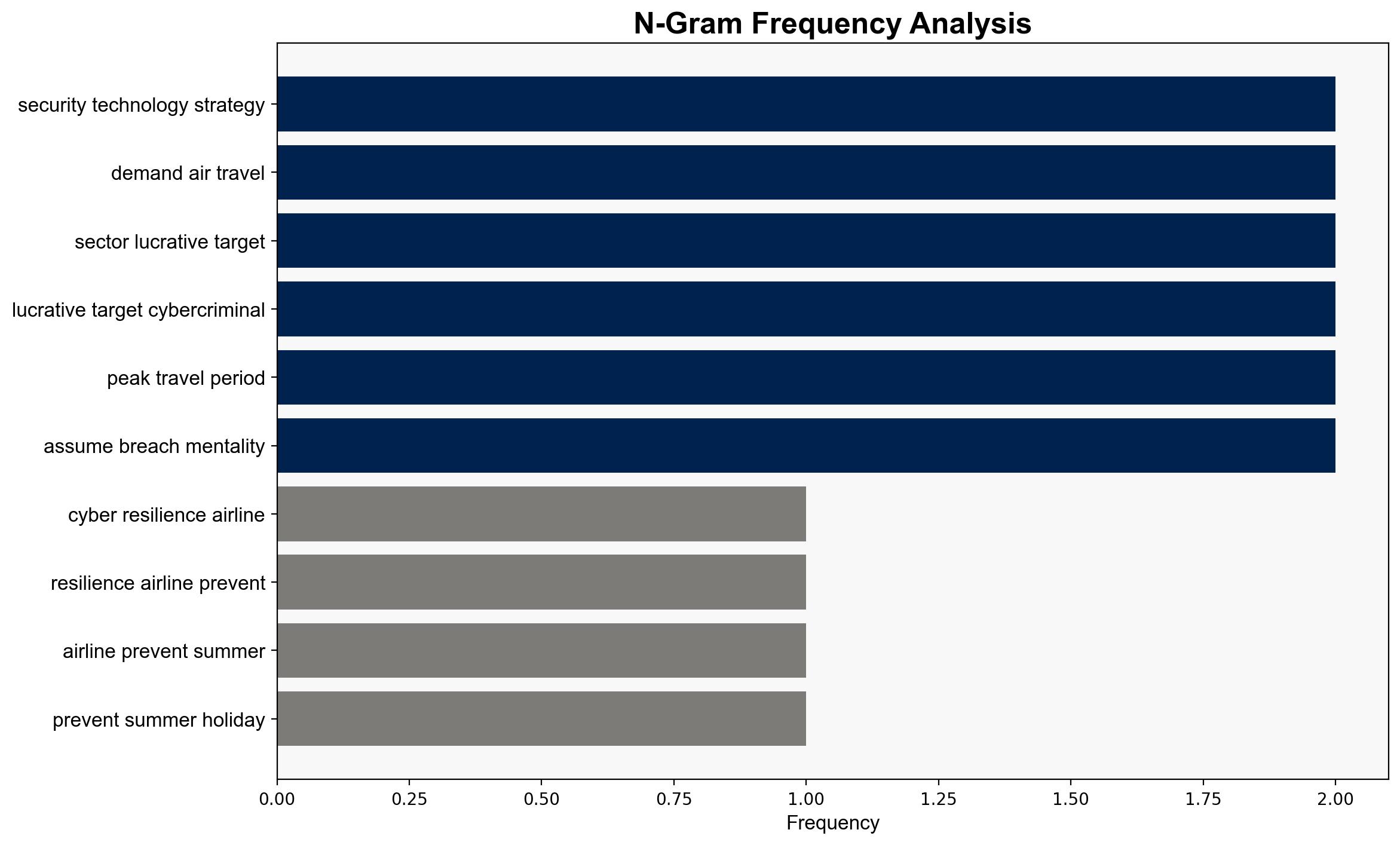Cyber resilience how airlines can prevent the summer holiday from hell – TechRadar
Published on: 2025-10-09
Intelligence Report: Cyber resilience how airlines can prevent the summer holiday from hell – TechRadar
1. BLUF (Bottom Line Up Front)
The most supported hypothesis is that airlines are increasingly vulnerable to cyber threats due to their vast customer data and interconnected systems, necessitating enhanced cyber resilience measures. Confidence level: High. Recommended action: Implement a zero trust architecture and strengthen partnerships with cybersecurity firms to mitigate potential disruptions.
2. Competing Hypotheses
Hypothesis 1: The aviation industry’s increased cyber vulnerabilities are primarily due to the surge in demand and the complexity of interconnected systems, making them lucrative targets for cybercriminals.
Hypothesis 2: The primary driver of increased cyber threats in the aviation sector is the inadequacy of current cybersecurity measures and protocols, which fail to keep pace with evolving threats.
Using ACH 2.0, Hypothesis 1 is better supported by the evidence of increased passenger numbers and the complexity of airline operations, which create more opportunities for cybercriminals to exploit vulnerabilities. Hypothesis 2 lacks specific evidence of systemic inadequacies in current cybersecurity measures.
3. Key Assumptions and Red Flags
Assumptions:
– Airlines possess adequate resources to implement advanced cybersecurity measures.
– Cybercriminals are primarily motivated by financial gain.
Red Flags:
– Potential underreporting of cyber incidents due to reputational concerns.
– Lack of detailed information on specific vulnerabilities exploited in past attacks.
4. Implications and Strategic Risks
The aviation sector faces significant risks from cyber threats, including operational disruptions, reputational damage, and financial losses. The interconnected nature of airline systems means that a single cyber incident can have widespread consequences. The economic impact could be substantial, affecting not only airlines but also related industries such as tourism and hospitality. Geopolitically, increased cyber threats could strain international relations if state-sponsored actors are involved.
5. Recommendations and Outlook
- Implement a zero trust architecture to enhance cybersecurity defenses.
- Strengthen partnerships with cybersecurity firms for real-time threat intelligence sharing.
- Conduct regular cybersecurity audits and simulations to identify and address vulnerabilities.
- Scenario Projections:
- Best Case: Successful implementation of enhanced cybersecurity measures leads to a significant reduction in cyber incidents.
- Worst Case: A major cyberattack causes widespread disruption during peak travel season, leading to significant financial and reputational damage.
- Most Likely: Incremental improvements in cybersecurity reduce the frequency and impact of cyber incidents, but the threat remains persistent.
6. Key Individuals and Entities
No specific individuals are mentioned in the source text. Entities include major airlines, cybersecurity firms, and regulatory bodies overseeing aviation security.
7. Thematic Tags
national security threats, cybersecurity, counter-terrorism, regional focus




